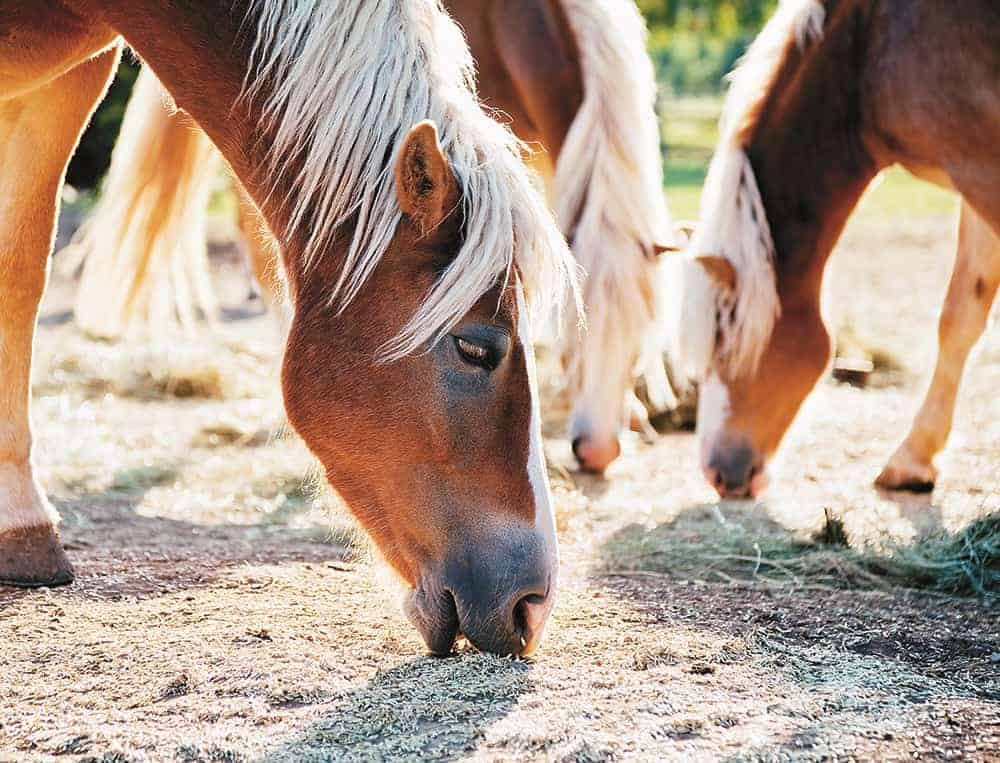Practicing Science-Based Horse Husbandry

Practical ways to improve your horse’s welfare, based on discoveries from the growing field of equitation science.
You load up your horse and head off for an all-day competition. Between events he’s tied up to the trailer and calls out constantly for his stablemates back home. You ride him with tie-downs and a very snug noseband to help control all this energy during the event—after all, it’s allowed in the competition rules.
Once you’ve finished up the day’s activities, you head back to the barn, brush him down, blanket him, and put him back in his clean stall for the night. You give him a nice big helping of feed and a sizable dose of loose hay for his evening meal. The next morning he’ll get a few hours of paddock time for a job well done.
Chances are you really do mean well. And, if you’re reading this article, it’s because you’re genuinely motivated to do right by your horse. But, unfortunately, the reality is that how we train, ride, stable, and feed horses today isn’t necessarily what’s in line with optimal equine welfare. And that can be a tough pill for many owners to swallow, especially when their methods are based on years of tradition and habit TheHorse.com is home to thousands of free articles about horse health care. In order to access some of our exclusive free content, you must be signed into TheHorse.com. Already have an account?Create a free account with TheHorse.com to view this content.
Start your free account today!
and continue reading.

Written by:
Christa Lesté-Lasserre, MA
Related Articles
Stay on top of the most recent Horse Health news with















